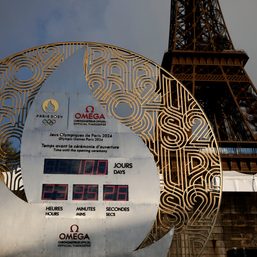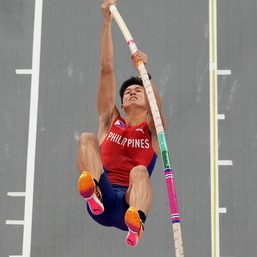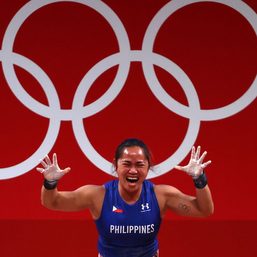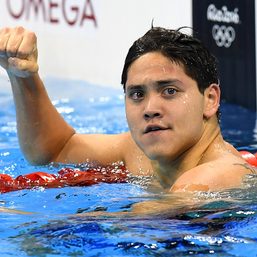SUMMARY
This is AI generated summarization, which may have errors. For context, always refer to the full article.
MANILA, Philippines – Saying the Supreme Court needs a “calmative cooling-off period,” lawyer Renato Saguisag proposed the appointment of a chief justice who will serve for only two years, or until 2014.
Saguisag recommended former San Juan Rep Ronaldo Zamora and incumbent SC Justice Roberto Abad to the post of chief justice on Monday, June 18. Abad, who was appointed to the High Tribunal in 2009, is already 68 years old, while Zamora will turn 68 in December.
The mandatory retirement age for SC justices is 70.
“Bobby or Ronnie can help the judiciary survive its crises, mend the ruptures of its discords, and continue to live and function as a unit in our institutional arrangements, more vibrant and professional than ever under a new primus inter pares,” he said in his letter of nomination to the Judicial and Bar Council (JBC), which vets nominees to the Court.
Saguisag said a “longer-serving successor” may be appointed at “a calmer time.”
A former dean of the University of Santo Tomas College of Law, Abad was already previously nominated by Nilo Divina, the current dean of the UST College of Law. Abad voted in favor of the issuance of a temporary restraining order (TRO) on the justice department late last year, that would have allowed former President Gloria Macapagal-Arroyo to leave the country. The government defied the TRO.
Abad has accepted the nomination.
Zamora, on the other hand, has been in government and politics all his life. His brother, Manuel Zamora, is chairman of Nickel Asia, one of the Philippines’ largest mining companies. Pending before the Supreme Court now is a case questioning the validity of the mining law.
On the other hand, Zamora’s other brother, Buddy Zamora, campaigned for President Benigno Aquino III in the 2010 elections. Manuel and Ronnie Zamora, however, rooted for then presidential bet Sen Manuel Villar.
Politicize the process
All eyes are now on the Supreme Court following the removal of Renato Corona as chief justice on May 29. The Senate, sitting as an impeachment court, found Corona guilty of violating the Constitution and betraying the public trust after he failed to disclose P183-M in peso and dollar accounts in his Statement of Assets, Liabilities and Net Worth.
Retired Chief Justice Reynato Puno has said the SC is at its “lowest point.”
Saguisag argued that the appointment of an “interim chief justice” will help “bring down the temperature.”
But Vincent Lazatin, member of the Supreme Court Appointments Watch (SCAW), said having an “interim” chief justice will only politicize the process, since this would give Aquino two opportunities to name a chief justice before he ends his term in 2016.
“Appointing an ‘interim CJ’ would seem to be a political move designed to allow President Aquino another opportunity to appoint a CJ in a less political context in a few years’ time. In a sense, it’s ‘gaming the system,'” he told Rappler.
“Such a move would seem to favor the most senior Associate Justice, [Antonio] Carpio. However, precisely, groups like SCAW are against the politicization of the selection and appointment process. Selection and appointment should be made with cold neutrality, based on who is best for the position, not on how to manipulate the process,” he said.
Corona has accused Carpio of being one of those who plotted for his ouster. As such, some groups and politicians have urged the President not to appoint Carpio. But Lazatin explained that after this so-called two-year interim period, political tension would have subsided, giving the President more leeway to appoint him.
Roberto Cadiz, executive director of the lawyers group Libertas, said having an “interim” chief justice would set a “bad precedent” for the Court.
“This will encourage factionalism within the SC insofar as the appointment of the CJ [chief justice] is concerned. There should be no other consideration in appointments to the Court, other than those stated in the Constitution – integrity, probity, competence.”
Like Arroyo?
If Aquino appoints someone who will serve for only two years, he can name another chief justice before he steps down in June 2016. His predecessor, then President Gloria Macapagal-Arroyo, was able to do this under her term. Breaking the tradition of appointing the next chief justice based on seniority in the Court, she appointed Artemio Panganiban as chief justice in 2006; he served for only one year. She then appointed the most senior justice – Justice Reynato Puno – only after Panganiban retired in 2007.
Carpio, the most senior in the SC now, will retire in October 2019. He is automatically nominated to the post, along with Justices Arturo Brion (March 2016), Teresita Leonardo De Castro (December 2018), Presbitero Velasco (March 2018) and Diosdado Peralta (January 2022).
Of the 5, only Brion has so far accepted his nomination.
Four junior justices – or those who have been recently appointed to the Court- have also been nominated. Aside from Abad, 51-year-old Justice Lourdes Sereno was also nominated, along with Justices Jose Perez (retiring in 2016) and Estela Perlas-Bernabe, who, if appointed, will serve for a decade.
Outlasting presidents
If Aquino chooses a “young” chief justice like Sereno or Bernabe, he will consequently prevent his successors from naming another chief justice. (Philippine presidents are entitled to a single 6-year term.) Sereno will stay for 19 years, while Bernabe still has 10 years to go before reaching the mandatory retirement age of 70.
The same could be said about the so-called “outsider” nominees. Justice Secretary Leila de Lima is only 52, while Bureau of Internal Revenue commissioner Kim Henares is only 51. Another new nominee, Aquino’s cousin and defeated presidential bet Gilbert Teodoro, is only 47 years old.
Sen. Francis Escudero, a member of the JBC, said there are other “advantages” and “disadvantages” in appointing a “young” chief justice.
There will be predictability in his decisions, he said, but having a young chief justice also “ties the hands” of the next president.
Aquino himself should know this. Mrs Arroyo insisted on naming a chief justice a month before she stepped down in 2010, effectively preventing Aquino from making his own appointment. Arroyo named Corona, who was supposed to stay until 2018. Corona, however, was impeached in December 2011 and later removed in May 2012.
40 and counting
Aquino has 90 days from May 29, when Corona was removed, to name the next chief justice. As of now, there are 40 nominees and applicants to the post – 31 outsiders and 9 SC insiders.
The new nominees include Teodoro, Zamora, lawyers Rey Alejandrino, Alexander Padilla, Vicente Velasquez, Renante Terre, Soledad Cagampang de Castro and Securities and Exchange Commission chairperson Teresita Herbosa.
Earlier nominees are Comelec commissioner Rene Sarmiento, Dean Amado Valdez of the University of the East College of Law, Roan Libarios, president of the Integrated Bar of the Philippines, lawyer Pedro Aquino, government peace panel chair Marvic Leonen, former congressman Teodoro “Teddy Boy” Locsin Jr, former Solicitor-General Francisco “Frank” Chavez, Henares, De Lima, incumbent Solicitor-General Francis Jardeleza, University of the Philippines professors Rafael Morales and Katrina Legarda, former UP law dean Raul Pangalangan, former Ateneo law dean Cesar Villanueva, lawyer Nepomuceno Aparis, retired judge Manuel Siyangco, and former SC nominee Rodolfo Robles.
Legarda, Pangalangan, Morales and Sarmiento have accepted their nominations. Lotilla, Sasodoncillo and Libarios have declined.
Retired Court of Appeals Justice Hilarion Aquino was previously disqualified because he is already 80 years old.
The sole applicant to the post, Jocelyn Esquivel, could not also be considered for the post because she is not a lawyer. Esquivel is a teacher and a nurse. JBC member Jose Mejia said though that while the two have been disqualified, their names remain in the list pending the finalization of the set of nominees and applicants.
A new applicant is dismissed Judge Florentino Floro.
The list is only expected to grow following the decision of the JBC to extend the application and nomination period to July 2. – Rappler.com
Click on the links below for related stories:
- JBC: ok to air live interviews for CJ post
- Nominations for CJ extended to July 2
- Ex-CA justice disqualified for CJ post
Elsewhere on Rappler:
Add a comment
How does this make you feel?


![[Time Trowel] Evolution and the sneakiness of COVID](https://www.rappler.com/tachyon/2024/02/tl-evolution-covid.jpg?resize=257%2C257&crop=455px%2C0px%2C1080px%2C1080px)







There are no comments yet. Add your comment to start the conversation.